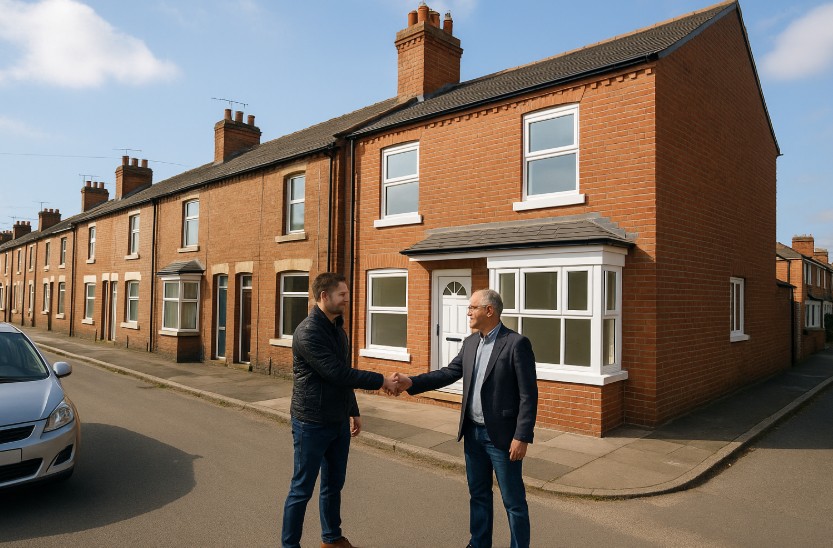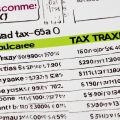Last Updated on: 17th September 2025, 11:39 am
If you’ve been thinking about flipping houses in the UK to turn a quick profit, one question probably pops up immediately: do you need to pay Capital Gains Tax (CGT)?
With the property market constantly evolving and house-flipping trending across social platforms, it’s no surprise many are exploring this income avenue. But the real issue isn’t just about making money, it’s about how that money is taxed.
Understanding how CGT works, how HMRC classifies profits from flipping, and when you might face income tax instead is crucial. Many new investors are caught off-guard by tax bills they didn’t anticipate, simply because they didn’t grasp the rules from the outset.
Whether you flip homes once or build a long-term business model, the tax implications remain an essential part of your success.
This guide unpacks everything you need to know about flipping houses and avoiding CGT in the UK, legally, smartly, and efficiently.
What Is Capital Gains Tax in the UK?

Capital Gains Tax (CGT) is a tax you pay on the profit you make when selling an asset that has increased in value. In the context of property, it applies when you sell something like a second home or investment property for more than you bought it for.
Here’s how it works for property owners in the UK:
- CGT is only paid on the gain (the difference between the purchase and sale price), not the entire selling price.
- Your main home is usually exempt if it qualifies for Private Residence Relief, which most homeowners benefit from.
- It typically applies to second homes, buy-to-let properties, or houses bought purely to resell.
CGT Rates for Property Sales (As of 2025):
- Basic-rate taxpayers pay 18% on gains from residential property.
- Higher-rate taxpayers pay 24%.
- You may also need to file a return and pay CGT within 60 days of completion when selling residential property that’s not your main home.
However, this is where things become complex for property flippers. Flipping is often treated differently by HMRC and doesn’t always fall under capital gains.
That’s where many investors go wrong and face larger tax bills than expected. Understanding these rules is the first step in deciding whether your profits will be taxed as capital gains or income.
Is Property Flipping Considered a Capital Gain or Income?

When it comes to tax classification, flipping houses sits in a grey area, but HMRC has made its stance clear. If your intention is to buy a property, renovate it, and sell it for a profit, you may not fall under Capital Gains Tax at all.
How HMRC Views Property Flipping?
HMRC doesn’t see property flipping as a passive investment like owning shares or holding a property long-term. Instead, flipping is considered an active trade, meaning your profits could be classed as income and taxed through Income Tax rules rather than CGT.
This assessment is driven by intent. If you bought the house purely to make a profit by reselling, you’ve essentially carried out a trade.
What Determines if It’s “Trading Income”?
To decide whether your activity is a trade, HMRC applies what’s known as the “badges of trade” test.
This test includes several indicators:
- Frequency of transactions: Buying and selling multiple properties regularly suggests a trade.
- Renovation or development work: Significant improvements made solely to boost resale value may be seen as trading behaviour.
- Intent at purchase: If your intent from the start was to sell at a profit, that’s a key sign.
You don’t need to flip multiple properties for this to apply. Even a single property can be treated as a trade if the intention was resale for gain.
Examples of Taxable Flipping Activities
Consider the following:
- You buy a run-down home, renovate it over six months, and sell it for £50,000 more than the purchase price.
- You finance this through short-term borrowing and do not live in the home.
- You repeat this process annually or multiple times.
In these cases, you’ll likely be seen as trading, and your profits will be taxed as income. This distinction can change how much tax you owe, and it’s one of the biggest surprises new property flippers face.
Why Are House Flipping Profits Usually Taxed as Income?
In the UK, flipping houses is rarely considered a capital gain. Instead, it’s commonly treated as a form of self-employment or trading activity, which means profits are taxed under Income Tax rules.
HMRC looks closely at your intentions and actions. If the primary goal was to resell for profit rather than hold the property as a long-term investment or residence, then the nature of the activity fits the definition of a trade.
Key factors why profits are taxed as income:
- Purpose at acquisition: Buying with the aim to sell for profit
- Frequency: Multiple property deals in short succession
- Effort: Active involvement in renovations or marketing
This is why individuals flipping homes must register for self-assessment and may also be liable for National Insurance Contributions (NICs) on their profits.
Profits from flipping are not considered “capital appreciation,” which is why CGT doesn’t typically apply. The end result? You may find yourself paying higher tax rates if your income exceeds certain thresholds. It’s essential to factor this into your business planning to avoid any tax surprises later.
How Much Tax Do You Pay When Flipping Houses?

Understanding your tax obligations is key to determining if flipping is financially worthwhile. Many people wrongly assume they’ll only pay CGT on profits, but that’s not the case if HMRC views your activity as trading.
Income Tax vs Capital Gains Tax Comparison
When your flipping is classified as trading:
- Your profits are subject to Income Tax.
- Basic rate (20 percent) or higher rate (40 percent or 45 percent) applies based on total annual income.
- There’s no CGT allowance when taxed as income.
Under CGT rules (only if it applies):
- You get a CGT tax-free allowance (£6,000 in 2025).
- Tax rates are lower (18 percent or 24 percent for residential property).
- CGT is usually only applied to the gain, not the entire profit.
Self-Assessment and Reporting Obligations
Flippers must:
- Register as self-employed.
- File annual self-assessment tax returns.
- Report all profits and pay tax based on the relevant tax band.
National Insurance Contributions
You might also be required to pay:
- Class 2 NICs (if profits exceed £6,725 a year)
- Class 4 NICs (9 percent on profits between £12,570 and £50,270, 2 percent above that)
Examples of Income Tax on Flipping
Let’s say you buy a home for £200,000, spend £30,000 on renovations, and sell it for £280,000. After deducting costs, your profit is £50,000.
If taxed as income:
- Added to your personal income, taxed at 20 percent or 40 percent depending on your earnings
- Plus NICs
- No CGT allowance or reliefs apply
Failing to plan for this can significantly impact your real earnings from a flip.
Can You Avoid Capital Gains Tax When Flipping Houses?

A common belief is that flipping houses is a clever way to avoid Capital Gains Tax altogether, but the reality is far different. HMRC’s classification of your activity will decide whether CGT or Income Tax applies, and most often, it’s the latter.
Misconceptions About CGT on Flips
Many flippers assume CGT applies simply because they’re dealing in property. But HMRC states that when you buy with the intent to sell, it’s income, not capital. Even one-off flips can be taxed as income if they meet the trade criteria.
Why Flipping Doesn’t Qualify for Private Residence Relief?
Private Residence Relief (PRR) protects your main home from CGT.
However:
- If you never intended to live in the property
- Or you briefly stayed there just to claim relief
- HMRC may disallow PRR, especially if it seems engineered for tax avoidance
You can’t use your main residence status as a tax loophole for flipping purposes.
When CGT Might Apply?
There are rare situations where flipping could fall under CGT:
- You inherit a property, improve it slightly, and sell it
- You make occasional sales with no clear trading pattern
- You live in the property for several years before selling
In these limited circumstances, HMRC may agree that it’s a capital gain. Ultimately, your intent and pattern of behaviour are what define the tax route.
Are There Legal Ways to Reduce Your Tax Liability?

Although you can’t completely avoid tax on house flipping, there are legal methods to reduce the amount you owe. These strategies require careful planning and documentation, but they can save you a considerable sum over time.
Here are the most effective legal strategies:
- Track your costs: Keep detailed records of renovation expenses, legal fees, stamp duty, and marketing costs. These can be deducted from your profits before calculating tax.
- Use a limited company: Trading through a company means profits are taxed at Corporation Tax rates (25 percent in 2025), which can be lower than personal Income Tax rates for high earners.
- Split ownership: Jointly owning the property with a spouse or partner allows you to use both personal allowances and potentially lower your tax band.
- Plan sale timings: If you’re completing multiple flips, staggering sales across different tax years can help you stay within a lower tax bracket.
Speak to a qualified tax adviser before implementing any strategy to ensure compliance with current UK tax laws.
Is Flipping Houses Through a Limited Company Better?
Many professional property flippers choose to operate through a limited company. This structure can offer tax advantages, though it also introduces additional responsibilities and costs.
Key benefits of using a limited company:
- Profits are taxed at 25 percent Corporation Tax, which may be lower than higher-rate Income Tax
- You can reinvest profits within the business for future flips
- Operating as a company may offer more credibility with lenders or joint venture partners
However, there are some drawbacks:
- You’ll face administrative costs such as annual filings, accounting fees, and payroll responsibilities
- Withdrawing profits as dividends or salary may trigger additional personal tax
This approach is best suited to those flipping regularly or running a full-time property business. One-off or occasional flippers may not benefit enough to justify the added complexity.
Consider your long-term goals before deciding on the right structure.
FAQs
Do I pay CGT on every property I flip?
Not necessarily. If the flip is classed as a trade, you’ll pay Income Tax instead of CGT.
Can I claim tax relief on renovation costs?
Yes, allowable costs like renovations and legal fees can reduce your taxable profit.
How does HMRC know if I’m flipping for profit?
HMRC uses the badges of trade to assess your intentions and actions.
Will I pay National Insurance on property flipping?
Yes, if treated as a trading activity, you’ll likely owe Class 2 and Class 4 NICs.
Is it legal to flip property through a limited company?
Yes, many UK flippers operate through companies to benefit from Corporation Tax rates.
What’s the CGT rate if I sell a second home?
You’ll pay 18 percent as a basic-rate taxpayer or 24 percent as a higher-rate taxpayer.
Can flipping one property be taxed as income?
Yes, even one flip can be treated as trading if your intent was to sell for profit.




















No Comments
Leave a comment Cancel